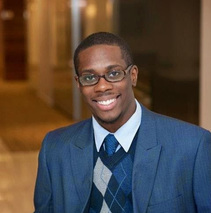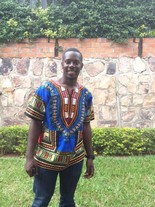|
Working with the Peace Corps is a travel experience like no other. Lavar Thomas, age 25, is currently serving as a Community Health Volunteer in the Western Province of Rwanda, a stay that will last a total of 27 months. Here, Lavar discusses his experiences and the lessons he's taught and learned.  As a Peace Corps volunteer, I am confronted by children affected with malnutrition and families fighting against abysmal poverty conditions. At the local health center where I work, I attempt to address the issue of food security and malnutrition by helping to train mothers and households on creating their own kitchen garden to increase access to nutritious foods. In addition to this, I have also been able to apply my musical talent and passion, creating a song and performing it at my swearing-in ceremony, as well as utilizing my musical creativity to teach effective hygiene practices and leadership empowerment among local youth. As a health volunteer, I am tasked with weighing babies and identifying sustainable ways to address health and social issues that affect people within my village. On my commute to my health center, I encounter children who are either severely malnourished or with visibly bloated stomachs due to limited access to a consistent meal. This experience has not only been a learning experience or channel to make a difference, but also an opportunity to appreciate what I often took for granted living in the United States and living in NYC. Furthermore, as one of only two black American male volunteers currently serving in Rwanda, I recognize the need for more young men of color to have international exposure. For many people within my village, I am the first black American they have encountered. In many of my youth workshops, many of my students become confused when I speak English and present myself differently than what they see in American music videos. My presence counteracts Rwandan assumptions about what is 'American'. The perception regarding black American culture is frequently shaped by media as a result of the lack of travel by black Americans. My presence counteracts Rwandan assumptions about what is 'American'. The perception regarding black American culture is frequently shaped by media as a result of the lack of travel by black Americans.  Living in Rwanda the past two years, I have recognized that for individuals living in more remote areas, to be an American means to be 'white'... the majority of the Americans they encounter, who are either doing development work or volunteering, are white. So as a black American, my very existence and visibility challenges their belief system as to what an American looks like or what it even means to be an American. Since I look like those in my environment, there is also an expectation to have greater fluency in the local language compared to my colleagues, however I find that Rwandans are more likely to feel comfortable opening up at a personal level, which is not common especially as a post conflict country. As I come to the end of my service in Rwanda, my experience as a Peace Corps volunteer has not only challenged my worldview and sense of self awareness, but also led to a greater appreciation for the relationships and for the lives that I come in contact with. The things that I took for granted such as brushing my teeth with clean water, using a toilet, or having electricity are things people in my village live without. Overall, being a part of this environment has helped me to identify what's really important in my life and lead a life of gratitude and purpose. About Lavar: Lavar is currently finishing up his 2yr Peace Corp term in Rwanda as a Community Health Volunteer. He received his B.A. in Political Science from Clark University, and is the former legislative aide to the chairman of the Public Health Committee and to the State Representative of the 15th Suffolk district in Massachusetts. (Story compiled by Elizabeth Meravi) |
Archives
July 2020
Categories
All
|
 RSS Feed
RSS Feed